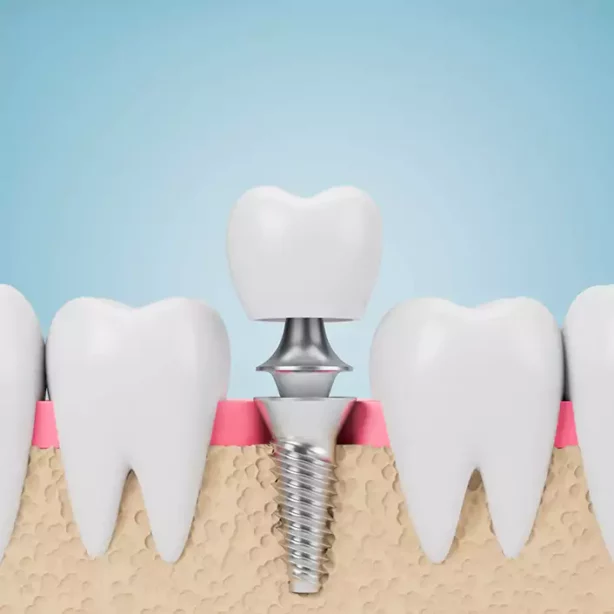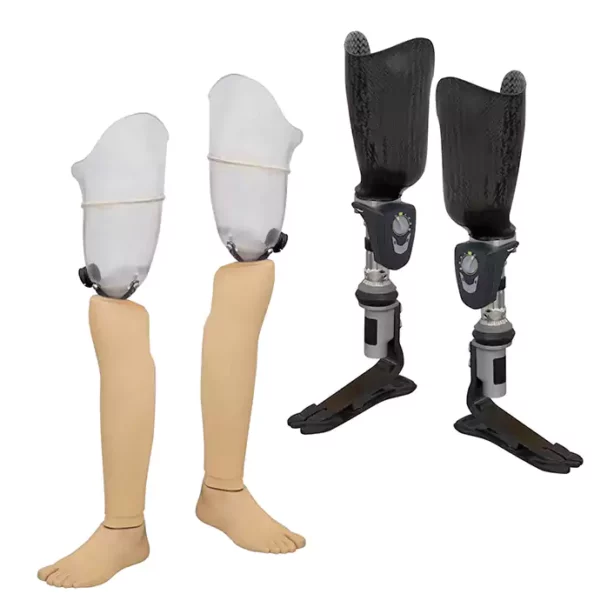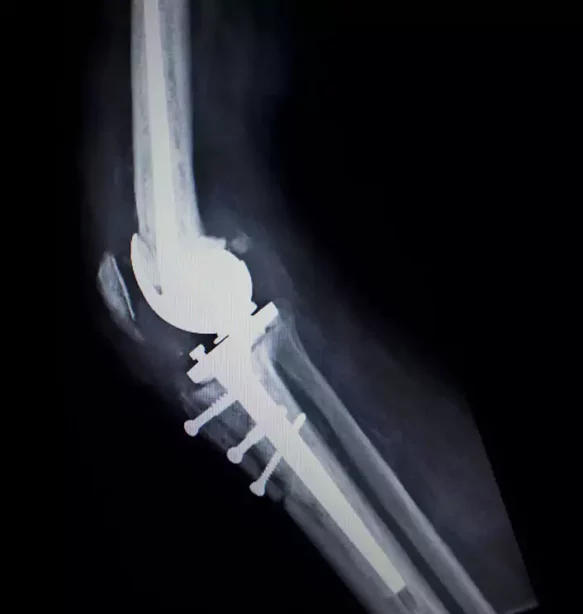CNC Machining: Precision Parts for Medical Devices
In today’s world, technology plays a vital role in the healthcare industry, and medical CNC machining is one such technology that has revolutionized the production of medical devices and components. From surgical instruments to implants and prosthetics, medical CNC machining has enabled the production of complex and customized medical components with high precision and accuracy. This article will delve into the world of medical CNC machining and explore its benefits, the selection of materials, common components produced through this technology, regulatory requirements, and how to choose the right CNC machining partner for the medical manufacturing industry. Read on to discover the impact of medical CNC machining in the healthcare industry.
What is medical CNC machining, and how does it contribute to the healthcare industry?
Medical CNC machining refers to the use of computer numerical control (CNC) machines to produce precision components and parts for medical devices, equipment, and instruments. The process involves the use of specialized software programs to design and program the machines to create precise shapes and sizes in various materials, such as metals, plastics, and ceramics.
This machining plays a key role in the healthcare industry due to its ability to produce high-quality and precision medical devices that are critical for diagnosing and treating a range of medical conditions. These devices include pacemakers, surgical tools, orthopedic implants, and diagnostic equipment, among others. With the growing demand for personalized and customized medical devices, this machining is becoming increasingly important in ensuring patients receive the best possible care.
For example, 5-axis CNC machining is widely used in dental medicine to produce titanium alloy implants for dental implants, ceramic crowns, and other parts.

Overall, CNC machining for medical plays a critical role in the healthcare industry by enabling the production of high-quality medical components and devices that save and improve lives.
What are the benefits of medical CNC machining?
CNC machining for Medical is a precise and versatile manufacturing process that offers several benefits for the healthcare industry. Here are some of the most important benefits of medical CNC machining:
High Precision and Accuracy
Precision and accuracy are critical when it comes to medical devices and implants. Medical CNC machining offers extremely high precision and accuracy, which ensures that the parts and components are manufactured to the required specifications. This precision and accuracy translate into better quality and reliability of the final product.
Material Flexibility
Medical CNC machining can work with a wide range of materials, including metals, plastics, and ceramics. This flexibility allows manufacturers to choose the most suitable materials for their medical devices or implants, depending on the specific requirements of the application.
Customization and Versatility
CNC machining allows for the customization of medical devices to suit the specific needs of patients. It also offers versatility in terms of design, allowing for the creation of complex shapes and features that would be difficult or impossible to achieve with other manufacturing processes.
Cost-Effectiveness:
Medical CNC machining can be a cost-effective solution for medical device production, especially for small to medium batch production runs. It also reduces the need for manual labor, thereby reducing labor costs.
Scalability
Medical CNC machining can be adapted from small to high-volume part production, making it a scalable solution for medical device production.
What materials can be used in medical CNC machining?
Medical CNC machining offers material flexibility for producing a wide range of components and devices used in the healthcare industry. Some of the commonly used materials for medical CNC machining include:

Stainless steel
Stainless steel is commonly used in medical CNC machining due to its excellent corrosion resistance and biocompatibility. It is used in surgical instruments, implants, and medical device housings.
Titanium
Titanium is widely used in medical CNC machining due to its high strength, biocompatibility, and corrosion resistance. It is used in implants and prosthetics, surgical instruments, and medical device components.
Cobalt-Chrome
Cobalt-chrome alloys are used in medical CNC machining due to their high strength, corrosion resistance, and biocompatibility. They are used in implants and prosthetics, surgical instruments, and medical device components.
Plastics
Plastics such as polycarbonate, polyethylene, and polypropylene are used in medical CNC machining due to their biocompatibility and versatility. They are used in medical device housings, enclosures, and instrumentation components。
Ceramic
Ceramics are used in medical CNC machining due to their biocompatibility, hardness, and wear resistance. They are used in implants, dental crowns, and surgical instruments.
Aluminum
Aluminum is used in medical CNC machining due to its lightweight, strength, and corrosion resistance. It is used in medical device housings, enclosures, and components.
How to choose materials for medical CNC machining?
When it comes to medical CNC machining, choosing the right materials is crucial for ensuring the safety and efficacy of medical devices, instruments, and implants. There are several factors to consider when selecting materials for medical CNC machining, including biocompatibility, mechanical properties, sterilization requirements, and regulatory compliance.
Here are some tips for choosing the right materials for medical CNC machining:

Biocompatibility
The material used in a medical device must be biocompatible, meaning it will not cause any adverse reactions or harm to the human body. Materials such as titanium, stainless steel, and medical-grade plastics are commonly used in medical CNC machining because of their biocompatibility.
Mechanical Properties
The mechanical properties of the material are also critical in medical CNC machining. The material should be strong, durable, and able to withstand the stresses and strains of use. For example, titanium is an excellent choice for implants as it is lightweight, corrosion-resistant, and has excellent strength and toughness.
Sterilization Requirements
Medical equipment and instruments must be sterilized to prevent the spread of infection. Therefore, materials used for medical CNC machining should be able to withstand the sterilization process without deteriorating or losing their properties. Materials such as stainless steel and medical-grade plastics can withstand high-temperature sterilization processes, making them ideal for medical CNC machining.
Regulatory Compliance
Materials used in medical CNC machining must meet regulatory standards set by the FDA and other regulatory agencies. Materials such as medical-grade plastics are extensively tested and regulated, making them popular choices for medical CNC machining.
Cost
The cost of the material should also be considered, as medical CNC machining requires high-quality and specialized materials that can be expensive. However, it is important not to compromise on the quality of the material to save costs, as this can compromise the safety and effectiveness of the medical device.
What are the most common medical components produced through CNC machining?
Medical CNC machining is widely used in the production of various components and devices in the healthcare industry. Here are some common medical components produced through CNC machining:
Surgical Instruments
CNC machining is used to produce surgical instruments with high precision and accuracy. This includes scalpels, forceps, retractors, and other tools used during surgical procedures. The ability to create intricate and complex shapes using CNC machining makes it an ideal manufacturing method for surgical instruments.
Implants and Prosthetics
CNC machining is also used to produce implants and prosthetics. The high precision and accuracy of CNC machining allow for the creation of custom implants and restorations that perfectly match the patient’s anatomy. CNC machining is used to create components for joint replacements, dental implants, and other medical devices.
Medical Device Housings and Enclosures
CNC machining is used to produce housings and enclosures for medical devices. These components are designed to protect sensitive electronic components and ensure the safe and reliable operation of medical devices. CNC machining can create complex shapes with high precision, making it an ideal manufacturing method for medical device housings and enclosures.
Instrumentation and Monitoring Components
CNC machining is used in the production of components used in medical instrumentation and monitoring devices. This includes parts for electrocardiogram (ECG) machines, ultrasound equipment, and other medical devices used for diagnosis and monitoring. The high precision and accuracy of CNC machining allow for the creation of components with tight tolerances, ensuring accurate and reliable performance.
Regulations and Standards for Medical CNC Machining
Medical CNC machining is a highly regulated industry due to the critical nature of the components produced. The following regulations and standards must be followed to ensure quality and safety:
FDA Regulations
The U.S. Food and Drug Administration (FDA) regulates medical devices and equipment to ensure their safety and effectiveness. Medical CNC machining companies must adhere to FDA regulations for device classification, labeling, and design control.
ISO 13485 Certification
ISO 13485 is an international standard that outlines the requirements for a quality management system (QMS) for medical devices. Medical CNC machining companies must obtain this certification to demonstrate their ability to provide products that meet customer and regulatory requirements.
Medical Device Directive (MDD)
The Medical Device Directive is a set of regulatory requirements for medical devices sold in the European Union (EU). Medical CNC machining companies that sell products in the EU must comply with these regulations.
Good Manufacturing Practices (GMP)
GMP is a set of guidelines for manufacturing processes that ensure products are consistently produced and controlled to meet quality standards. Medical CNC machining companies must follow GMP guidelines to ensure the safety and efficacy of their products.
How to choose a manufacturer for CNC-machined medical parts?
When it comes to medical CNC machining, finding the right manufacturing partner to ensure high-quality and compliant medical components is critical. Here are some factors to consider when selecting a medical CNC machining partner:
Experience and Expertise: Look for a processing partner with a proven track record in producing high-quality medical components. Check out their experience and expertise in machining medical parts.
Certification and Compliance: Ensure that the machining partner has the necessary certifications and complies with regulations such as FDA regulations, ISO 13485, Medical Device Directive (MDD), and Good Manufacturing Practice (GMP).
Quality Control Process: The machining partner should have a robust quality control process in place to ensure components meet the required specifications and standards.
Cost and lead time: The manufacturer should be able to provide cost-effective solutions and produce medical components within reasonable lead times.
Work with CapbaleMachining for your medical machining projects
CapableMachining is a reliable partner for medical CNC machining, offering high-quality and efficient services to help you bring your medical products to market quickly and cost-effectively. We follow ISO2768 medium and ISO2768 coarse quality standards, and our well-established QC team and well-equipped facilities ensure that we provide full-dimension final quality reports, which are essential in the medical industry.
Our experienced engineers and quality inspectors understand the unique requirements of the medical sector, including material selection. We will help you select the best materials for your project, taking into account factors such as biocompatibility, strength, and sterilization compatibility. We also offer a free design for manufacturing analysis report to optimize your design and save costs.
With CapableMachining, you can trust that your medical parts and prototypes will be manufactured with the highest precision and accuracy, meeting your unique demands and industry standards. Submit your design files today and receive instant quotes to get started on your medical CNC machining project.
To sum it up
In summary, medical CNC machining offers a range of benefits that make it a valuable manufacturing process for the healthcare industry. Its precision, material flexibility, customization, cost-effectiveness, and scalability make it the first choice for the production of a wide variety of medical components, including surgical instruments, implants, medical device housings, and monitoring components. However, compliance with regulations and the selection of the right processing partner are key considerations in ensuring the quality and safety of the final product. With advancements in technology and increasing demand for custom medical devices, CNC machining is likely to play an important role in the healthcare industry of the future.